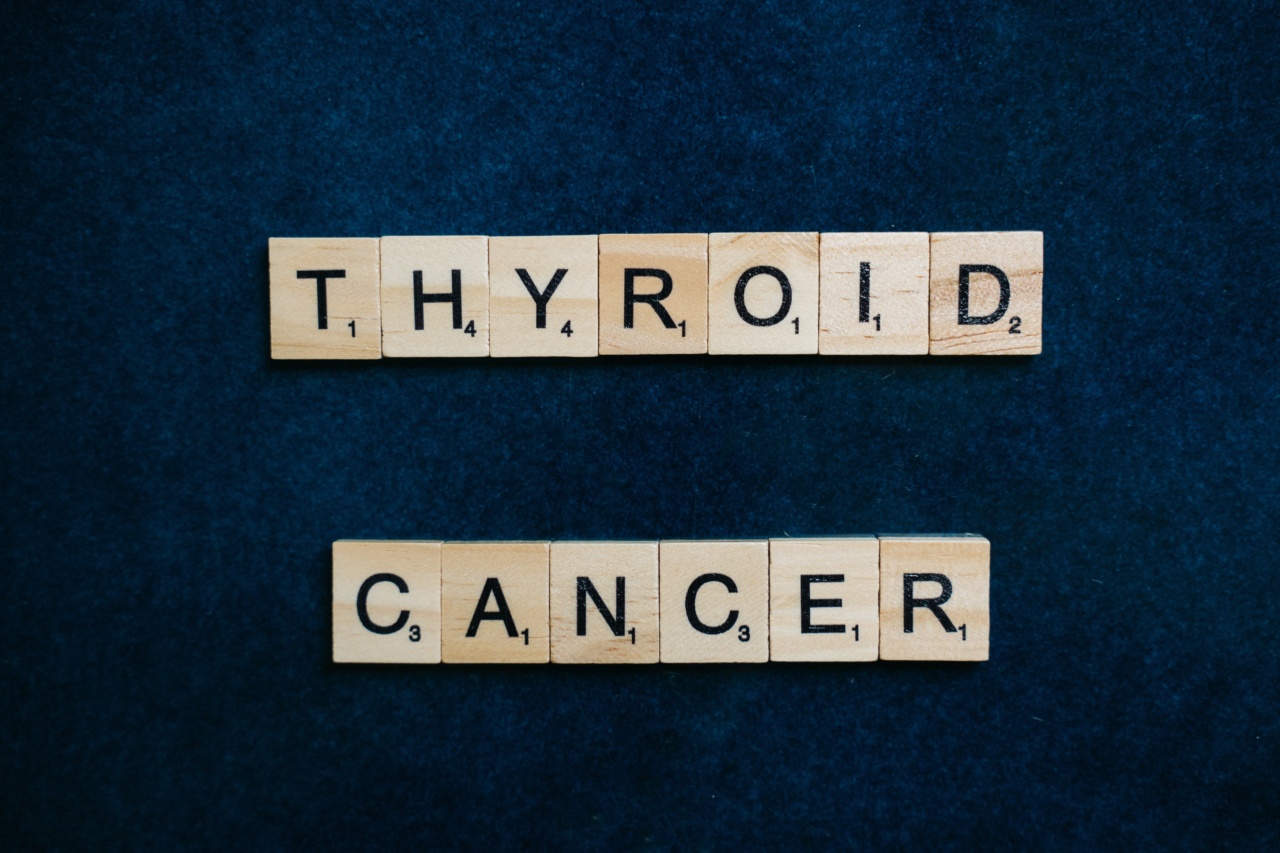Central obesity is a condition in which excessive body fat is accumulated in the abdomen area.
Studies have shown that central obesity is associated with an increased risk of several health conditions such as cardiovascular diseases, type 2 diabetes, and certain types of cancer including thyroid cancer. Thyroid cancer is the most common type of endocrine cancer, which affects the thyroid gland. It is a serious condition that requires immediate medical attention.
What is Thyroid Cancer?
Thyroid cancer is a type of cancer that develops in the thyroid gland, a small butterfly-shaped gland located in the neck. The thyroid gland produces hormones that regulate metabolism, heart rate, and body temperature.
The most common type of thyroid cancer is papillary thyroid cancer, which develops in the follicular cells of the thyroid gland.
Thyroid cancer usually grows slowly and may not show any symptoms in its early stages. However, as it grows, it can cause symptoms such as a lump or swelling in the neck, difficulty swallowing or breathing, hoarseness, and swollen lymph nodes.
What Causes Thyroid Cancer?
The exact cause of thyroid cancer is not known, but several factors can increase the risk of developing thyroid cancer:.
- Exposure to radiation: Exposure to high doses of radiation, particularly in childhood, increases the risk of thyroid cancer.
- Family history: People with a family history of thyroid cancer or other thyroid diseases are at a higher risk of developing thyroid cancer.
- Gender: Thyroid cancer is more common in women than men.
- Age: Thyroid cancer can occur at any age, but it is more common in people over the age of 40.
- Diet: A diet high in iodine increases the risk of thyroid cancer in people with an iodine deficiency.
What is Central Obesity?
Central obesity, also known as abdominal obesity, is a condition in which excessive body fat is accumulated in the abdominal area. This type of fat is also known as visceral fat, which surrounds the organs in the abdomen.
Central obesity is primarily caused by a sedentary lifestyle, a high-calorie diet, and genetic factors. Increased levels of cortisol, a stress hormone, can also contribute to central obesity.
Is There a Link between Central Obesity and Thyroid Cancer?
Several studies have shown that there is a link between central obesity and an increased risk of thyroid cancer.
One study found that women with a waist circumference of more than 80 cm had a 51% increased risk of thyroid cancer compared to women with a waist circumference of less than 68 cm. Another study found that men with a waist circumference of more than 102 cm had a 133% increased risk of thyroid cancer compared to men with a waist circumference of less than 90 cm.
The mechanism behind the link between central obesity and thyroid cancer is not yet fully understood. However, it is believed that central obesity can affect the levels of hormones in the body, which can increase the risk of thyroid cancer.
In particular, central obesity is associated with an increased level of insulin-like growth factor, which can promote the growth of cancer cells.
Prevention and Treatment
The best way to prevent thyroid cancer is to maintain a healthy lifestyle by eating a balanced diet, engaging in regular physical activity, and avoiding exposure to radiation.
Regular check-ups with a healthcare provider can help detect thyroid cancer early when it is more easily treatable.
Treatment for thyroid cancer usually involves surgery to remove the thyroid gland, followed by treatment with radioactive iodine to destroy any remaining cancer cells. In some cases, radiation therapy or chemotherapy may also be needed.
Conclusion
Central obesity and thyroid cancer are serious health conditions that require immediate medical attention.
It is important to maintain a healthy lifestyle by eating a balanced diet, engaging in regular physical activity, and avoiding exposure to radiation. Regular check-ups with a healthcare provider can help detect thyroid cancer early when it is more easily treatable.


























